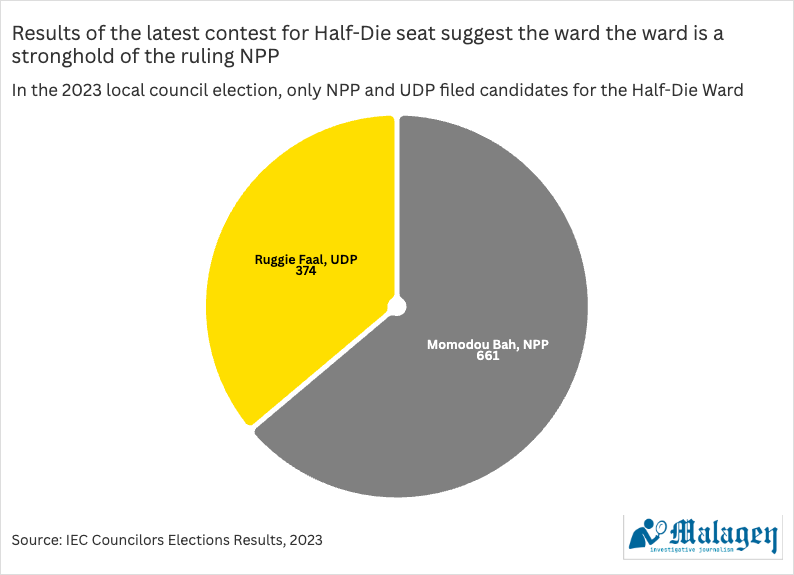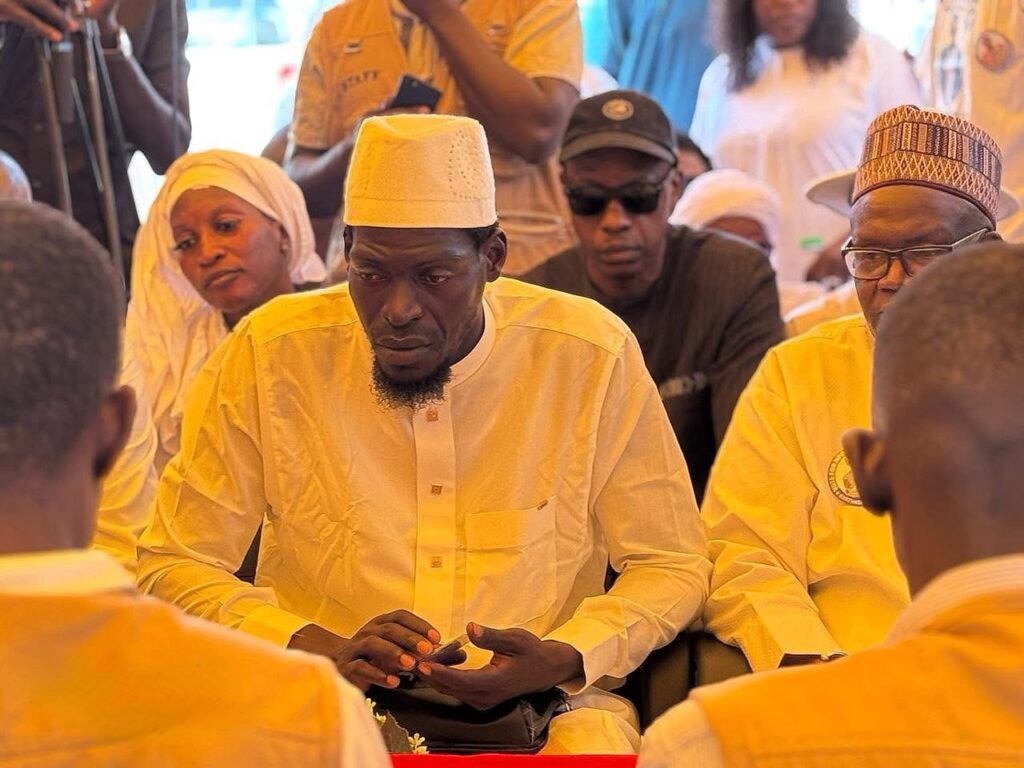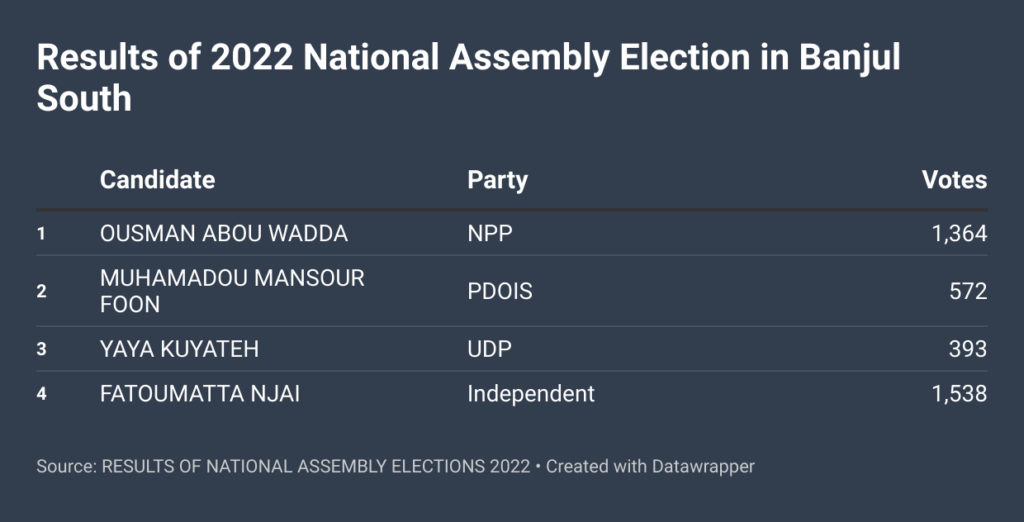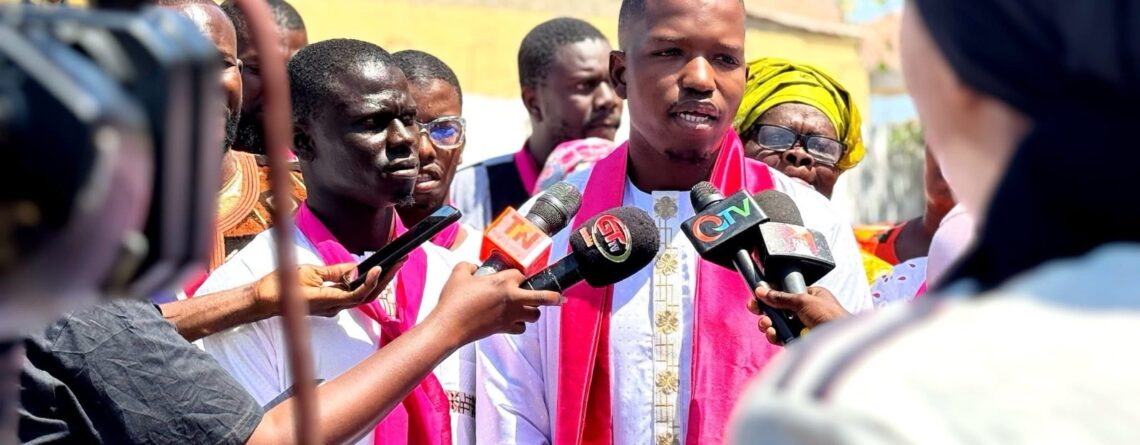Explainer: Can NPP Keep Seat Against Opposition Alliance in Half-Die Vote
The contest in Banjul on Saturday between recent former allies, the ruling coalition and a former ruling party backed by the opposition, promises to be a hard-fought battle – a symbolic test of political strength with a year and a half until the presidential election.
When the United Democratic Party (UDP) defeated its arch-rival, the ruling National People’s Party (NPP) in the Kiang Masembeh by-election, its officials declared the victory a sign of what could happen in the 2026 presidential election.
Yet the main opposition UDP was conspicuously absent from Saturday’s ballot in the Half-Die by-election in the capital, Banjul, where winning could hold strong symbolic value.
But the party isn’t exactly neutral or disinterested in the capital.

The vote in Half-Die promises to be a hard-fought battle between the ruling NPP and the former ruling Peoples Progressive Party (PPP), who were allies until recently. The contest is widely seen as a test of political strength, with a year and a half until the presidential election.
“The Half-Die by-election is more than just a local vote, it’s a litmus test,” said Biran Gai, a political analyst who also teaches at the University of The Gambia. “If the opposition wins, it could mark the beginning of a powerful coalition strategy ahead of 2026.”
Ward councillors mobilise resources and influence local councils to help address everyday issues of their communities from waste management to road maintenance.
Half-Die, a storied neighbourhood that feels sleepy yet boasts vibrant commercial activity, has such needs in abundance.
For nearly two decades, residents have protested the massive expansion of the seaports. Many households were recently evicted forcibly. More homes, shops and social facilities, including Muslim High School, will all be consumed by the $114.6 million project.
Banjulians said the expansion will ‘kill Half-Die’.
“They can go into the sea and expand whatever they want to expand there because that is easier than taking people’s properties, compensating them, and reducing the capital,” said Ebou Faye, a ruling NPP mayoral candidate who became a strong critic of the move. “So, our policy is that we don’t want Banjul to be small.”
But such is the reality that awaits the incoming councillor: a ward significantly reduced in area and population, roughly half the original size.
Yet, the contest is fierce.
PPP candidate Mr. Jallow informed Malagen that his campaign budget is around 170,000 dalasis. He alleged without providing evidence, that the NPP is spending ten times that amount.
The NPP candidate did not respond to interview requests.
However, reports indicate an initial budget submission of D5 million, which the party’s national executive deemed exorbitant – it is reported to be more than twice the amount NPP spent in Masembeh, a significantly larger constituency. NPP deputy spokesman Seedy Njie did not respond to our request for comment.
But some local civil society organisations said they will observe the poll, watching out for ‘voter inducement and vote-buying. Marr Nyang of Gambia Participates said “unethical and illegal electoral practice by politicians” remain unaddressed.

A rare opposition alliance
The UDP party has thrown its weight behind the candidate of Peoples Progressive Party (PPP).
They are not alone.
The People’s Alliance Party (PAP), which has formed an alliance with Essa Faal’s Team Sobeya, had withdrawn its candidate at the last minute to support the opposition candidate.
The strategy reflects a recent trend of opposition parties uniting against the ruling party, according to Mr. Gai, citing the recent Kiang Masembeh by-election where opposition parties overwhelmingly backed the UDP to secure a bitterly contested win against the NPP.
But Half-Die is not Masembeh. The two areas have almost polar opposite voting patterns.
Masembeh is a ‘UDP deposit.’ Half-Die, one of the oldest settlements in the capital, is one of the two wards in Banjul South whose 6,000 voters overwhelmingly voted for President Barrow in the 2021 presidential election.
But, unlike Mademseh, Half-Die may not be a reliable stronghold for the ruling NPP.

In the National Assembly election, Fatoumatta Njie, the incumbent, narrowly won re-election as an independent after falling out with the PPP.
Despite the ruling NPP’s overwhelming victory in Banjul during the 2021 presidential election across all three regions, the party lost the mayoral election to UDP and failed to win any National Assembly seats in the capital.
Who Are the Candidates?
Bartholomeh Bolo Colley, the candidate for NPP, is believed to be in his 40s.
PPP’s Salieu Jallow, 36, is a youth activist.
Who is Expected to Win?
Analysts said although the ruling NPP is favoured to keep the seat, resentment over the incumbent who overstayed his council-sponsored visit to Europe could push voters to vote for the opposition PPP candidate, who is already backed by an opposition alliance.
Why Is the IEC Holding a By-Election in Banjul’s Half-Die Ward?
The Independent Electoral Commission (IEC) of The Gambia is holding a by-election in Banjul’s Half-Die Ward following the unexpected vacancy of the councillor position. The seat became vacant after Momodou Bah, the former councillor under the National People’s Party (NPP), failed to return home from an official visit to Belgium. The trip was part of efforts to strengthen the sister-city partnership between Banjul City Council and Ostend City Council.
Story by Kaddy Jawo
Photos by Yasmine’s Visuals.

